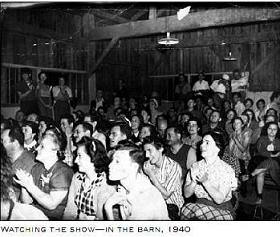This delightful short story was offered to thebaronhirschcommunity.org by the author’s daughter, Nora Fischer Kisch, and the author’s niece and nephew, Tamra Hope Miller and Jon Meyerson. We are very grateful for their generosity.

The Nightingale’s Nest takes place in 1920 on a Jewish farm in Ulster County NY, in the Catskill mountains, 100 miles northwest of Manhattan. You can read more about Jewish farming in the Catskills and the Baron Hirsch Fund’s support for these efforts right here.
Many Jewish farmers in the Catskills,, like the family in The Nightingale’s Nest, rented rooms to summer visitors from crowded New York neighborhoods. These paying guests frequently were on the kuchalayn plan, cooking their own meals, offering the farmers a ready market for their products. Like the Lippman – Miller family, from Belarus, described in this story, these Jewish farmers often obtained financing to purchase these farms from the Baron Hirsch Jewish Agricultural Society.

In 1936 the author and her mystery writer husband, Bruno Fischer, returned to the idyllic landscapes north of New York City where they became founders of the Three Arrows Cooperative Society , a 125 acre vacation colony based on socialist ideas. Located just south of the Catskills in Putnam Valley, NY , Three Arrows is still active and homes are for sale.
The Catskill’s Nightingale’s Nest
by Ruth Fischer

Nobody cared for animals more than Grandma, if they met her simple specifications of giving milk or eggs. She tolerated a cat for necessary service, but it was only grudgingly given house room.
For as long as I can remember, there was a running battle between my grandmother and grandfather because of his affection for a horse. During the summer when the horse grazed on the open fields and required no greater expenditure than labor, she could overlook his absurd extravagance. But in the winter it was a different story; she would make life miserable for poor Grandpa when the feed bills came in.








